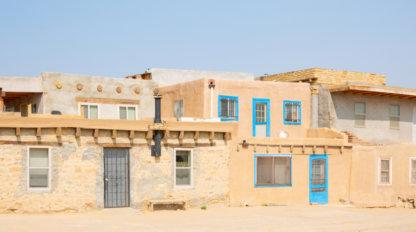The term “Acoma” and its variations—Akome, Acu, Acuo, and Ako—mean “a place always prepared.” The age of the Acoma Nation is debated, but traditional oral histories suggest deep roots, claiming a spiritual homeland called “Haaku.” Archaeological evidence indicates that Acoma has been continuously inhabited since at least A.D. 1200, with the Acoma people historically welcoming neighboring tribes to share in their fertile valley, which was once abundant in water for farming.
As of the twenty-first century, the narrative of Acoma continues to evolve. The San Esteban Del Rey Mission, a significant historical site, exemplifies the resilience of Acoma architecture, which has endured for over 370 years due to the dedicated efforts of the Acoma people. The Gaugashti, or church caretakers, have played a vital role in this preservation, reflecting their deep commitment to maintaining a structure of immense cultural significance. This architectural survival parallels the revitalization of the Acoma people and their cultural practices.
Modern Acoma actively engages in preserving its language and traditions through initiatives like the Pueblo of Acoma Historic Preservation Office and the Acoma Language Retention Project. These programs symbolize the community’s resolve to address the challenges of modernity while honoring their heritage. The Acoma people view their journey as an ongoing story, emphasizing the importance of cultural continuity and the need for innovative solutions to preserve their language and traditions.
In light of alarming statistics about the decline of native languages, Acoma community members recognized the urgency of language preservation. Established in 1999, the Acoma Language Retention Program was initiated in response to the dwindling use of Keres among children, exacerbated by Western influences. Concurrently, the Historic Preservation Office was founded to protect Acoma’s cultural resources, promoting traditional skills and renewing interest in the community’s rich history. Together, these initiatives prioritize the preservation of Acoma’s language, culture, and history for future generations, aiming to inspire others in the community to take action in safeguarding their cultural legacy.

